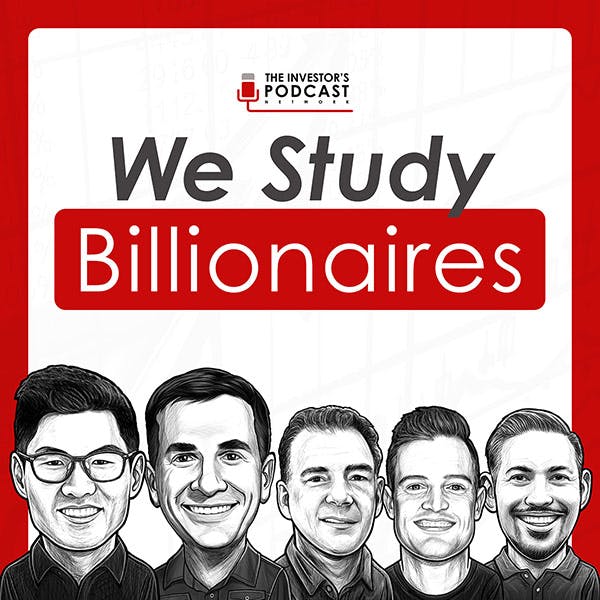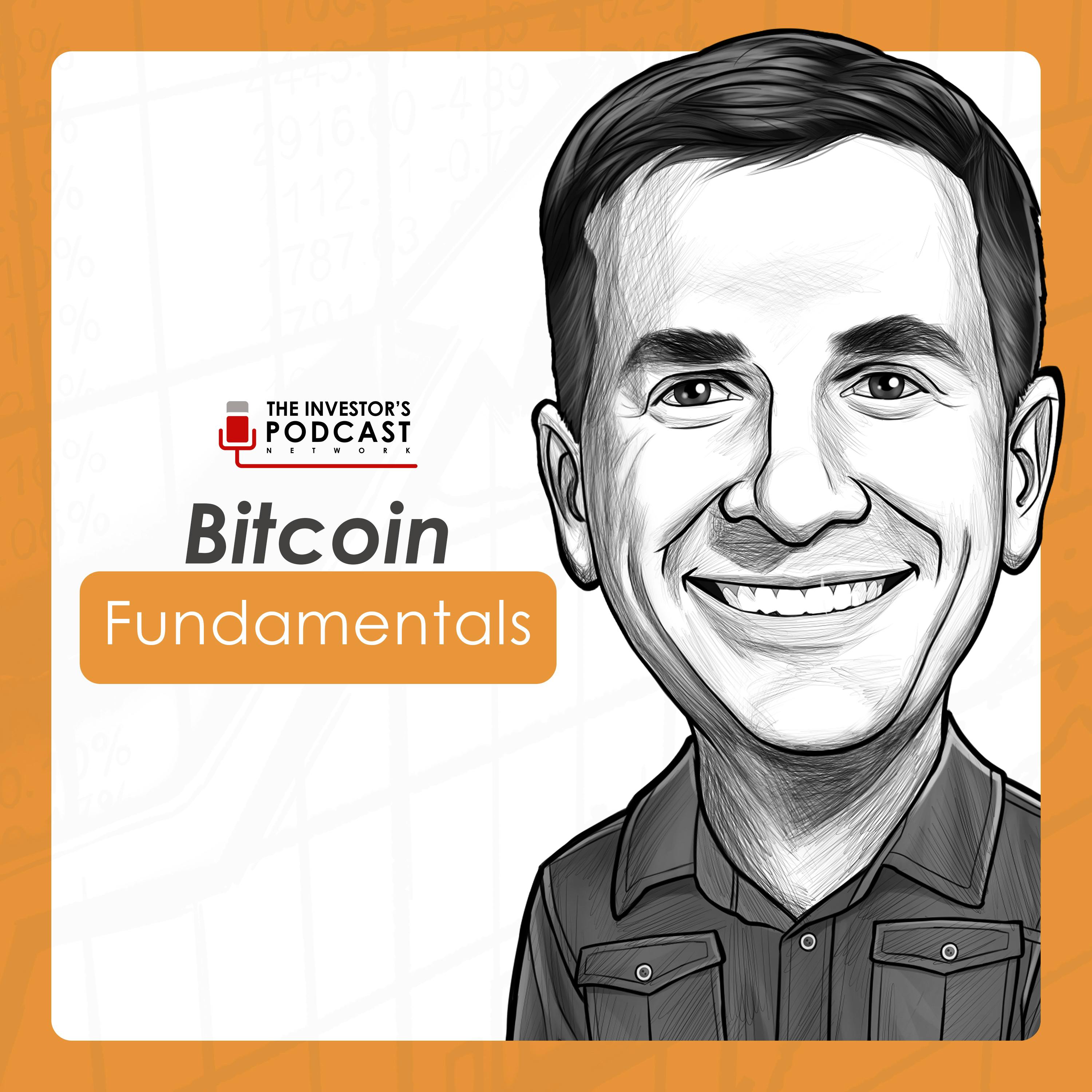
September 27, 2024 • 1hr 7min
TIP663: The Truth About Private Equity w/ Ted Seides
We Study Billionaires - The Investor’s Podcast Network

Key Takeaways
- Private equity has grown from a cottage industry to a $6.5 trillion global industry over the past few decades
- According to data from Hamilton Lane, private equity generated 14.6% annual returns over the 20 years ending in 2022, outperforming the S&P 500's 9.8% return
- Key factors driving private equity's growth and returns include:
- Ability to use leverage and cheap debt financing
- Control over operations and management of portfolio companies
- Locked-up capital allowing for long-term focus
- Buying companies at discounts to public market valuations
- Private equity firms can create value through operational improvements, financial engineering, and strategic repositioning of portfolio companies
- While private equity has a reputation for job cuts, data shows it has been a net job creator overall
- Private equity remains primarily accessible to institutional investors, though some firms are developing products for high net worth individuals
- The industry faces headwinds from higher interest rates and a maturing market, which may impact future returns
Introduction
In this episode, host Clay Finck interviews Ted Seides, author of the new book "Private Equity Deals: Lessons in Investing, Dealmaking, and Operations from Private Equity Professionals." They discuss the growth of the private equity industry, how private equity firms create value, and examine several case studies of notable private equity deals.
Ted Seides is the host of the Capital Allocators podcast and has extensive experience in the institutional investment world, including working with legendary investor David Swensen at Yale's endowment. His insights provide a balanced view of private equity's strengths and challenges.
Topics Discussed
Growth of the Private Equity Industry (2:09)
Ted explains how private equity has grown from a niche strategy to a major force in the investment world over the past 20-30 years:
- Initially adopted by endowments and foundations seeking higher returns
- Gained traction after the 2008 financial crisis as investors sought alternatives to low bond yields
- Continued to deliver strong returns, attracting more institutional capital
- Now represents significant allocations for many large investors:
- Up to 50% for some endowments/foundations
- 10-15% for many public pensions and sovereign wealth funds
Ted notes: "You've seen this massive acceleration of growth, and that's what's really happened over the last 30 years, with that back half being significant acceleration in assets."
Private Equity as "Superior Capitalism" (6:44)
Ted explains why David Swensen referred to private equity as a "superior form of capitalism":
- Control over portfolio companies allows PE firms to drive profits through:
- Management changes
- Operational improvements
- Strategic shifts
- Financial engineering
- High fees generate significant revenues for PE firms to reinvest in talent and resources
- Ability to parachute in industry experts as operating partners
Ted states: "There's no better way to think about how you would drive the profits of a business than being a control owner."
Private Equity Returns (8:51)
Ted discusses the historical outperformance of private equity compared to public markets:
- Even average PE funds have delivered 2-5% annual outperformance vs S&P 500
- Hamilton Lane data shows 14.6% annual returns for PE vs 9.8% for S&P 500 over 20 years through 2022
- Factors driving outperformance include:
- Use of leverage/cheap debt
- Buying companies at discounts to public valuations
- Operational improvements
Ted notes measurement challenges but states: "When you have that significant of a net of fee premium, no matter how you slice and dice comparables, it's been significant value added to the investors in private equity funds for a long time with pretty high degree of consistency."
Criticisms and Reputation of Private Equity (20:36)
Ted addresses some of the criticisms and negative reputation of private equity:
- Acknowledges there are "bad actors" and cases of job cuts
- Argues these are a small percentage of overall PE activity
- Notes PE has been a net job creator according to aggregate data
- Lack of transparency historically contributed to negative perceptions
- Media tends to focus on outlier negative stories
Ted states: "Private equity today encompasses 10,000 businesses across every industry, guaranteed. All these stories are correct. There are bad actors for sure...It also happens in the public markets. It also happens in privately owned family businesses that nobody reads about. And it's probably a tiny percentage of the 10,000 businesses they own."
Impact of Rising Interest Rates (28:49)
Ted discusses how the recent rise in interest rates has impacted private equity:
- Deal activity has slowed as buyers and sellers adjust to new rate environment
- Higher rates increase cost of capital, potentially lowering valuations
- Many businesses can still operate fine with somewhat higher rates
- Sellers may choose to hold assets longer rather than sell at lower prices
Ted notes: "One of the things that's happened is there hasn't been as much deal activity the last two years as people try to figure out what is the clearing price for an asset."
KKR's "Perfect Private Equity Deal" - CHI Overhead Doors (31:26)
Ted walks through KKR's highly successful 2015 buyout of garage door manufacturer CHI Overhead Doors:
- Attractive business characteristics:
- Recession-resistant demand
- Steady growth
- High margins and cash flow
- KKR implemented "ownership works" model:
- Provided equity incentives to all employees, not just management
- Educated workers on business ownership
- Involved employees in some capital allocation decisions
- Results:
- Margins and performance improved significantly
- KKR's $250 million investment returned over $1 billion
- Employees received average payout of $175,000
Ted describes it as "a pretty emotional thing" when KKR announced the employee payouts, highlighting the potential positive impact of private equity.
Apollo's Purchase of Yahoo (41:05)
Ted discusses Apollo Global Management's 2021 acquisition of Yahoo from Verizon as an example of finding value in unloved assets:
- Yahoo/AOL had declined from $350 billion peak valuation to $5 billion purchase price
- Apollo saw value others missed in Yahoo's assets:
- 900 million monthly active users
- Valuable stakes in Yahoo Japan and ad tech business
- Within 18 months, Apollo:
- Sold Yahoo Japan stake and ad tech business
- Recouped entire $2 billion equity investment
- Retained core Yahoo business generating ~$1 billion in profits
- Now focused on monetizing Yahoo's user base through initiatives like sports betting
Ted notes: "Nobody else wanted to touch this asset. And if you had said to somebody, oh, all you have to do is sell these businesses and you get all your equity back in 18 months and you'll own this thing for free. Anyone would have done it but nobody had the foresight to do it."
KPS Partners' Acquisition of TaylorMade Golf (47:59)
Ted examines KPS Partners' successful turnaround of TaylorMade after acquiring it from Adidas in 2017:
- TaylorMade was losing $200 million annually when put up for sale
- KPS specializes in manufacturing turnarounds
- Key improvements made by KPS:
- Fixed inefficiencies in manufacturing and supply chain
- Rationalized new product introductions and pricing
- Focused marketing spend on athletes with large social media followings
- Results:
- Turned $200 million loss into $200 million profit in 4 years
- KPS made 8.5x return on investment when sold
Ted highlights this deal as an example of how private equity can apply "common sense" improvements to struggling businesses: "There are a lot of examples in private equity of just that common sense isn't common practice."
Private Equity for Individual Investors (55:33)
Ted discusses the potential for individual investors to access private equity strategies:
- Traditionally limited to institutional investors due to illiquidity
- Some large firms developing products for high net worth individuals
- Challenges remain in providing access while maintaining strategy integrity
- Individual investors often gravitate to brand name firms like Blackstone
Ted notes: "I don't think there's a structure yet that's settled in beyond the original LP/GP private partnership structure that's been widely adopted. But there are a lot of people with a vested interest in making that happen."
Future of Private Equity Careers (58:13)
Ted shares his perspective on career opportunities in private equity going forward:
- Industry maturation means fewer opportunities to build new large firms
- Concentration of assets in mega-funds makes it harder for new entrants
- Compensation likely to be lower than in past decades
- Suggests focusing on technology/AI as areas of future opportunity
Ted advises: "If I were starting over, that's what I would want to be paying attention to. Now, how you participate in that can really tie into who you are, but that's clearly the area of change that's going to be incredibly important for the next generation."
Conclusion
This wide-ranging discussion provides valuable insights into the private equity industry from an experienced insider. Ted Seides offers a balanced view of private equity's strengths and challenges, using specific deal examples to illustrate how firms create value. While acknowledging criticisms, he makes a case for private equity as an important part of the investment landscape that has delivered strong returns. Looking ahead, Ted sees a maturing industry facing headwinds but still offering opportunities for those who can navigate its complexities.









